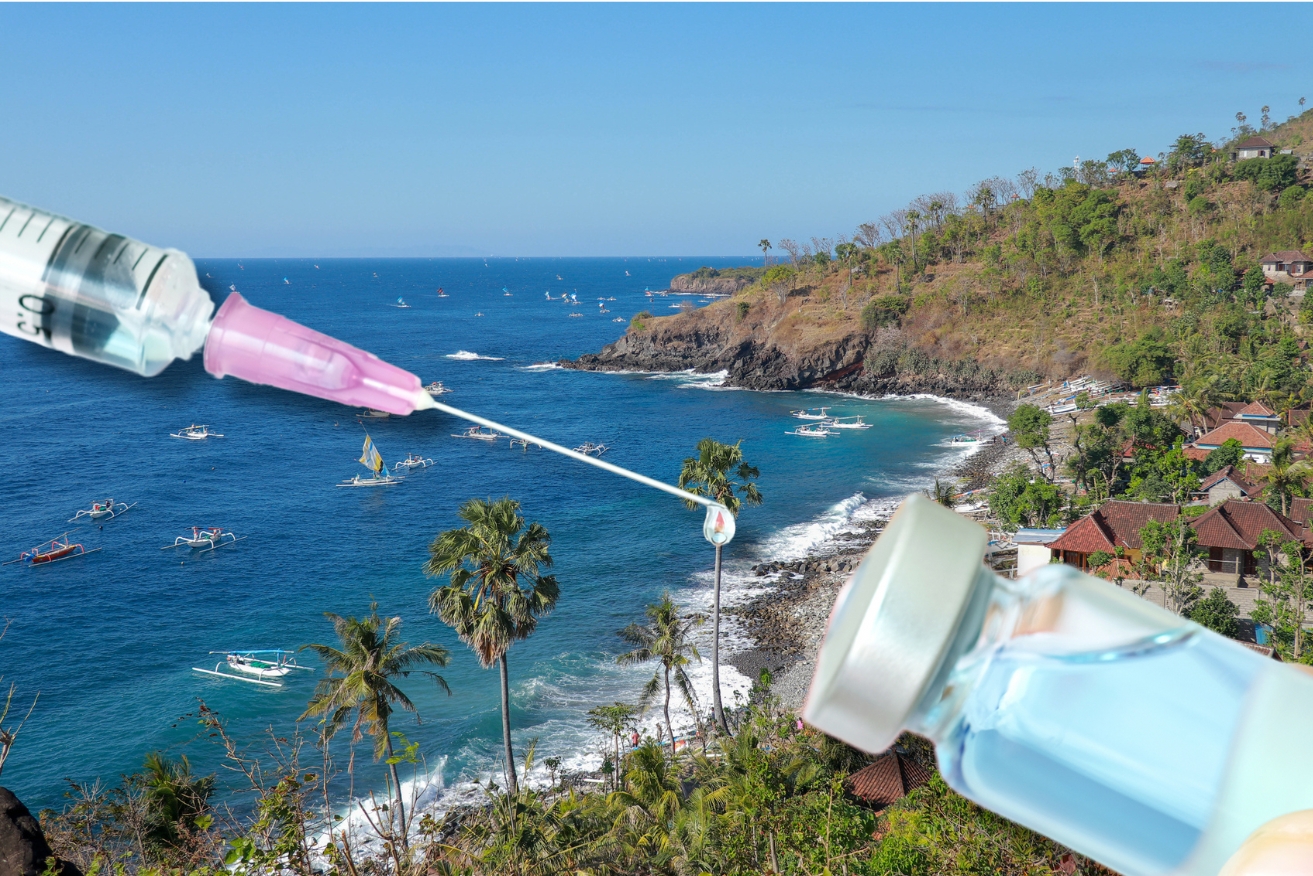
Aussies love to explore the world, but any trip overseas comes with health risks. Minimising those risks is essential – but can be costly.
Sarah McGuinness, infectious diseases physician at Monash University and The Alfred Hospital, tells The New Daily travellers should take advantage of preventative strategies such as wearing masks, maintaining hand hygiene and being careful with food and drink to avoid falling ill overseas.
Still, vaccinations are a key precaution to reduce the risk of serious illness. Unfortunately, you’ll have to pay for many of them yourself, unless they fall under the National Immunisation Program Schedule.
“Most travel vaccines come with an out-of-pocket cost because they’re either vaccines that are not routinely recommended in Australia or only recommended for certain groups,” McGuinness said.
Prices can range from about $50 for a hepatitis A shot to $300 for a Japanese encephalitis vaccine.
“It’s also possible that you might need to pay to see your health professional, whether that’s a doctor, or a nurse, or a pharmacist who’s actually giving you the vaccines.”
Her advice is to visit your health care provider four to six weeks before travelling. That gives the vaccines time to work, and allows for any that require more than one dose.
Tailoring vaccines to your destination
If you haven’t had recent flu and Covid booster shots, these are strongly advised to consider before jetting off, regardless of the destination.
Some regions and countries may present more risk than others for certain diseases, so doing your research ahead of a trip is important. Finding out which vaccines are recommended is just one part of the equation. It’s also important to be across medical advice in the event you do fall ill.
In January, New Zealand topped the countries Australians returned home from, followed by Indonesia and India, according to the Australian Bureau of Statistics.
New Zealand’s health risks are “broadly similar” to Australia, according to Smartraveller, which does not recommend specific vaccinations for travel to our neighbour.
Indonesia presents higher risks of diseases such as malaria, rabies, polio, measles and Japanese encephalitis. If you’re tempted to book that cheap last-minute flight, are you already vaccinated, or do you have a plan for avoiding mosquitoes and stray dogs? Are you aware of what to do if you’re bitten?
Travel in India presents similar health risks, along with issues such as swine flu.
If you’re looking for vaccine recommendations for a specific country, head to Smartraveller or the Australian Immunisation Handbook, and speak with your doctor.
Figuring out your vaccination history
If you’re planning to get vaccinated ahead of a trip, McGuinness advises it’s a good opportunity to check whether you need to get any regular jabs as well.
Many Australians would have participated in the country’s childhood vaccination program; while some of these hold up well over time, others, such as the measles vaccine, require an eventual top-up.
If you can’t recall which ones you’ve had, and can’t track down records to confirm, your doctor can do a blood test which will screen for the relevant antibodies that indicate whether you have adequate protection against measles, mumps, rubella and hepatitis A or B.
If you still can’t figure out whether you’ve been vaccinated for something before, McGuinness says there’s usually no harm in receiving additional doses.
